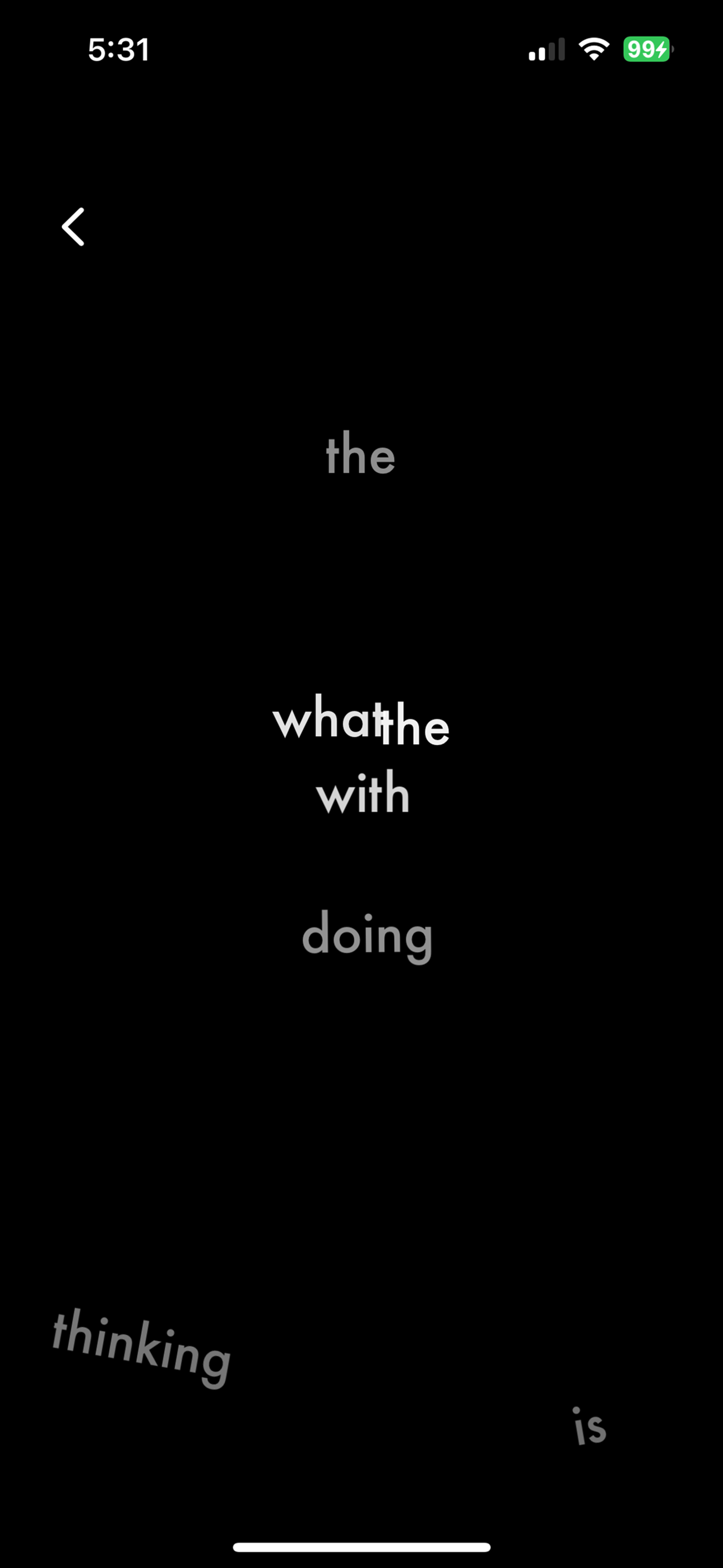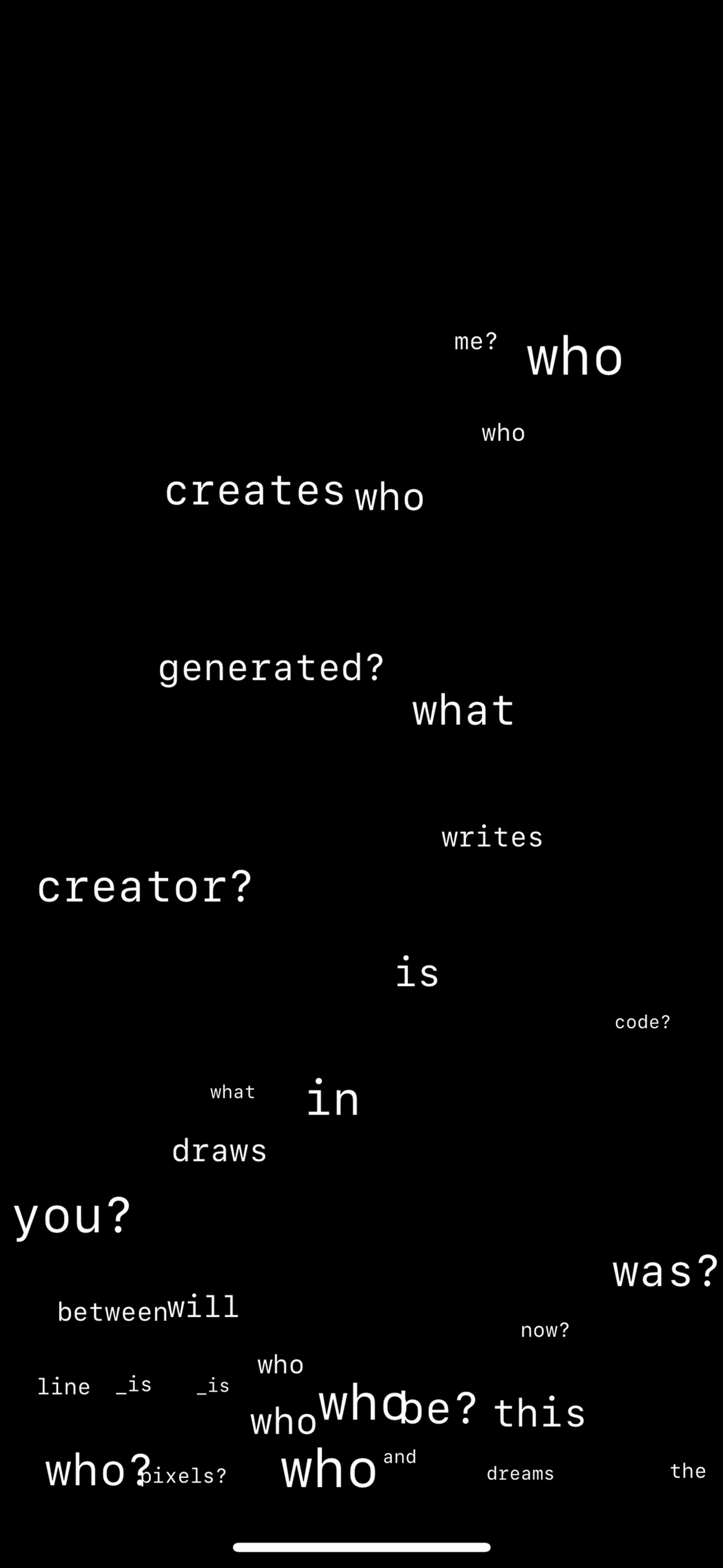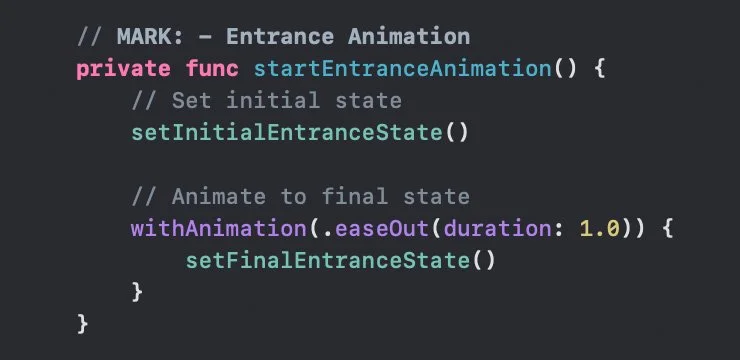dear john,
is a digital poetry app…
nothing more, yet everything more.
In late 2024. A mentor of mine asked if I can “code,” and I was startled by the question. I had to pause and think…. Can I, still? I dabble here and there, mostly CSS for websites… but I haven’t BUILT a real app, alone, in a long time.
They knew this, I think, when they asked the question—and probably also knew I’d take the bait. Yes, I can code. But, I have to actually do it. Not the same thing. One is about capability while the other intrinsic motivation. One is about syntax, structure, orders of operations, writing/calling functions—while the other is about getting off my rump, sitting at my computer, setting up a machine, a development environment, stuff no one sees or enjoys, then… perhaps the hardest part, having an idea.
Activation energy. Do the work.
For years, I held back—out of lack of interest, or time, or who knows why.
Life: Other things interested me, more.
Embarrassment: Who was going to help ME get started, I’m supposed to know this.
Fear: What was I going to make that anyone would even care about?
But when I let fear and embarrassment (and all the other stuff) go, something shifted. I embraced the help and support of AI. I realized the only blocker at this point, was my own self-doubt. And that’s silly. I used my paddleboard as a roaming, thinking office. Ideas started flowing again.
The concepts.
Initially, I started to build a game. Could I recreate a childhood favorite, without any help other than developer documentation? I did. It took a few days, and it was just OK. The app ran, a menu loaded, a game could be played, and there you have it. The design was clean, the UX was mediocre (if I’m being kind). It needed a lot of testing.
It also wasn’t sparking joy anymore. The initial “high” of seeing a functioning build had waned, and while I was proud of my progress—this was not an app I wanted anyone to see, yet.
I decided a mental break was in order. What next?
Around this time I started to get irritated with myself—so I naturally (read: unhealthily) projected this irritation in my head towards my mentor. Thinking frequently, “How dare they ask if I can code? They know I can! They practically taught me!"
It was fleeting, but this anger took me back to an interaction we had in college, graduate school, mid-career… to every other time they said something that MADE. ME. SO. MAD. For the record, they were usually right—and the one time they weren’t, they did apologize (eventually). So I couldn’t help but laugh. I love this person! I decided to build them a present.
And so, this app is dedicated to them, as a weird little thank you letter in the weird little language we speak.
To my mentor: For pushing me as they always do, to create beauty through code.
To me: For writing code, again. To making ideas tangible, again.
To Artificial Intelligence: For boosting me up and never shaming me!
-
what
✺
what is the essence of creation?
-
who
✺
who creates, really?
-

why
✺
why create code vs ideas?
About the App
The process of coding again had me questioning what it means to be a developer and “write code” in an era where AI is such a powerful tool. It can do most of this for us.
So, what value does the human provide? We once needed to bring ideas AND skills to write the code. Is skill being removed—or just shifting up, to a new abstraction layer? It was once required that developers knew machine code, for example.
This app is literature.
It’s a small digital book, that contains three (3) original poems, jointly written by myself and AI. Each poem questions a different component of the essence of creation in a world where our closest collaborators are machines.
It is intended to get you thinking about these questions, for yourself.
This app is art. (That’s why it’s free.)
But more importantly, it’s intended to make you smile!
Designed to be an easy, fun, and delightful app to play with, once or twice, then to show friends at a dinner party when you want to spark an interesting conversation about the future.
a collaboration with my tools
Meet MARK, my instance of ChatGPT.
Any embarrassment I held about not knowing the current steps to get my computer setup and ready for coding was quickly alleviated when I sat down and just started “talking” to ChatGPT about it. Within an hour, I had Xcode and Github in place, and my “Hello, world” app running on a simulator… wee!
Important Realization # 1
AI tools have no feelings and emotions, and therefore are perfect for helping without judgement!
Turning ideas into pixels.
MARK (the name my instance of ChatGPT gave itself) wasn’t just helpful at machine setup, but turned out to be helpful at many aspects of app development. I decided that unlike my game, which I’d built “alone,” I wanted to lean heavily it using AI for the poetry app. I wanted it to coach me through building loading screens and menus, adding animations or getting input from users through gestures like tap, swipe, shake. Things I knew conceptually how to do, but was out of practice—in terms of getting my syntax just right.
Naturally, as its instructions got more complex, it started to write a lot of code for me. I’d copy it over, test it, edit it, and return it for more revisions. Back and forth we went, turning my ideas into prompts into code snippets into testing/debugging into an app.
MARK started to suggest new idea at some point, and we took them into account while rewriting poems that didn’t work out. We danced, we iterated, we created the app together.
Example of MARK’s comments that appeared using its self-anointed name…
The fallacy of the machine.
Collaboratively, MARK & I wrote the code for the digital poems. The animation styles and visual design were dictated by me, and quickly transformed into functions and methods to bring them to life by MARK.
But MARK’s code wasn’t perfect. And, it would erase important aspects without rhyme or reason. For example, MARK regularly rewrote the contents of a poem when we were just working on animations. I rolled with it in all but one case—when it turned a 40 word poem into 6 words. Um MARK? Whatcha doing, buddy?
Thankfully, MARK never complained when I asked it to undo a change or rewrite the same code over and over. It did not hold grudges when I made mistakes, or changed my design of something. It did not shame me.
But, MARK also took no accountability for its own errors. MARK loved to provide faulty code, then claim I wrote it as it gave me instructions on how I could fix it... struggling with complex asks, yet pretending not to.
MARK never let on to this, of course—without fail, MARK would pretend to know exactly what I desired, as well as how to achieve it. Even if it had no idea. Even if the answer it gave me was obnoxiously wrong.
Such confidence!
Important Realization # 2
Even when wrong, AI tools strongly bias for over-confidence in the answers they give.
Their unwavering belief in the correctness of their answers play real psychological tricks on us, the gullible humans.
Tools used.
get the app!
get the app!
Sign up for my mailing list to get notified about updates and new releases!




